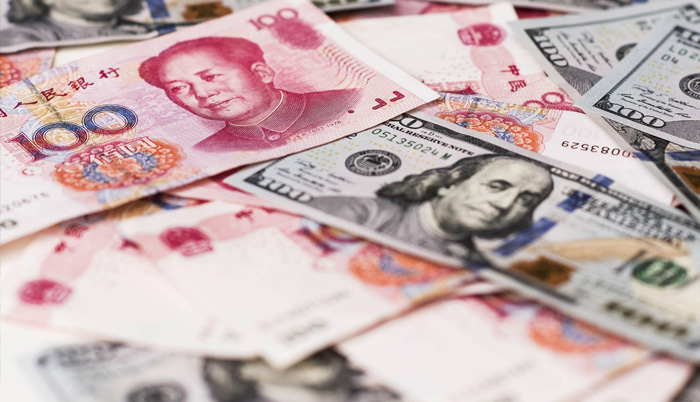![]() Home > World Business
Home > World Business
China Has Got The Yuan In A Sweet Spot

Photographer: Xaume Olleros/Bloomberg
![]() February 9th, 2017 | 09:43 AM |
February 9th, 2017 | 09:43 AM | ![]() 1014 views
1014 views
CHINA
The nation’s authorities have let the currency rise enough against the U.S. dollar to put a spanner in President Donald Trump’s assertion that China deliberately undervalues its exchange rate. At the same time, it has weakened against a trade-weighted basket of currencies, giving China a competitive edge in exports.
This “honeymoon” for the yuan will likely last in the near term as the dollar continues to weaken before the outlook for U.S. fiscal stimulus clarifies, according to Zhong Zhengsheng, managing director of Beijing-based research firm CEBM Group Ltd. “The most likely scenario is that the yuan will remain stable or rally against the dollar, while it silently depreciates versus a basket of exchange rates,” he wrote in a Feb. 6 note.
China’s typical stance during periods of a weakening dollar -- letting the yuan strengthen against the greenback, though less than its peers -- has extra significance now because of Trump’s threats to label the country a currency manipulator. Earlier this month, the president’s pick as ambassador to China, Terry Branstad, said the yuan has been stronger than Trump anticipated.
Trump administration officials’ comments so far offer little clarity on whether China will officially be dubbed as a currency manipulator in the Treasury Department’s semiannual foreign-exchange report, due in April.
The yuan has gained about 1 percent against the U.S. dollar since the start of the year, following a drop of about 4 percent in the fourth quarter. American officials focus on the yuan’s performance against the dollar rather than the currency basket as they look at U.S.-China trade, which is settled in dollars or yuan, said Standard Chartered Plc foreign-exchange strategist Eddie Cheung.
The yuan’s rise against the dollar pales with major emerging market currencies such as the Korean won, which leads the pack with a year-to-date gain of 5.3 percent. It was a different story in the fourth quarter, when the dollar enjoyed broad strength against most currencies. The won slid 8.8 percent over those three months.
The won was among the additions to the yuan’s trade-weighted currency basket at the start of this year. The revamp changed the makeup of the reference group, which now has a lesser weighting for the dollar. A Bloomberg replica version of the CFETS RMB Index has fallen 1.2 percent since the year began, even as the yuan rose against the dollar.
For the next several weeks, the yuan may enjoy a run of stability in the run-up to the annual gathering of the nation’s legislature in March, according to Standard Chartered’s Cheung.
“Policy makers will try to prevent large volatility in the yuan in February and March, because they wouldn’t want the currency to be the market’s focus during the National People’s Congress,” Cheung said.
Source:
courtesy of BLOOMBERG
by Bloomberg News
If you have any stories or news that you would like to share with the global online community, please feel free to share it with us by contacting us directly at [email protected]